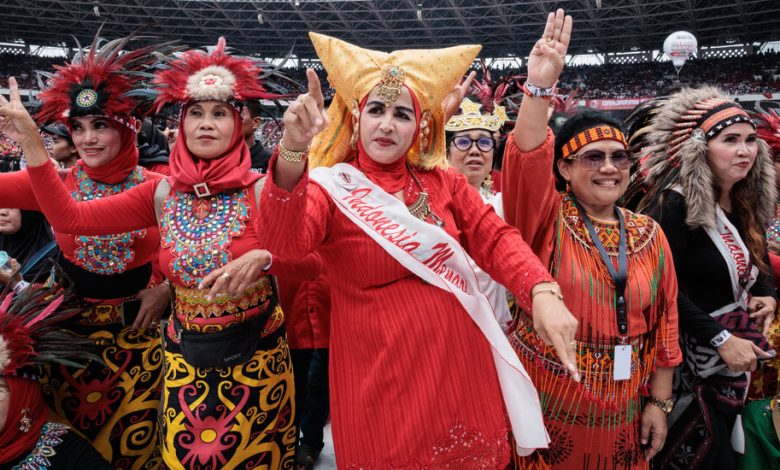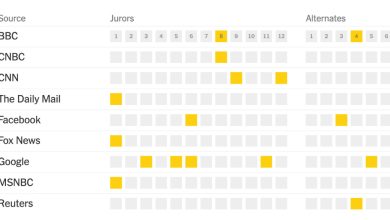A ‘Democracy Party’ Like No Other: One of the World’s Biggest Elections

The young women and men moved from booth to booth, asking questions about the political hopefuls’ track records and visions for the country. A few steps away, first-time voters practiced casting their ballots in pretend voting booths. And onstage, talk show guests discussed how to make an informed choice in backing a candidate.
This gathering of more than a thousand people one recent Sunday in Jakarta, the capital of Indonesia, was a prelude to a celebration that is widely known here as “Pesta Demokrasi,” or Democracy Party.
Otherwise known as Election Day, it’s when tens of millions of people across this vast archipelago of thousands of islands head to polling stations that are sometimes decorated with balloons, garlands and flowers, and manned by officials dressed up as Spider-Man, Batman, Thor or other superheroes. After voting for presidential, parliamentary and local legislative candidates, people camp out near their polling places with food as they wait for early counts to trickle in. The next “party” is on Wednesday.
Free and fair elections in Indonesia were unthinkable as recently as the mid-1990s, when it was still under the brutal rule of Suharto. But after his fall in 1998, the country emerged as the world’s third-largest democracy. Partly because Election Day is a national holiday, voter turnout has consistently been among the highest in the world and reached a record 80 percent in 2019. With the minimum voting age set at 17, the biggest bloc this time is people under 40, who make up more than half of the 205 million voters in Indonesia.
The presidential election is a three-way race, and billboards with the faces of the three candidates — Anies Baswedan, Prabowo Subianto and Ganjar Pranowo — loom over major roads. Their debates are furiously discussed on Instagram, TikTok and X. Indonesians refer to the three men by their candidate numbers, so in homes, warungs and cafes here, the inevitable question is: “Are you voting for 1, 2 or 3?”
We are having trouble retrieving the article content.
Please enable JavaScript in your browser settings.
Thank you for your patience while we verify access. If you are in Reader mode please exit and log into your Times account, or subscribe for all of The Times.
Thank you for your patience while we verify access.
Already a subscriber? Log in.
Want all of The Times? Subscribe.




